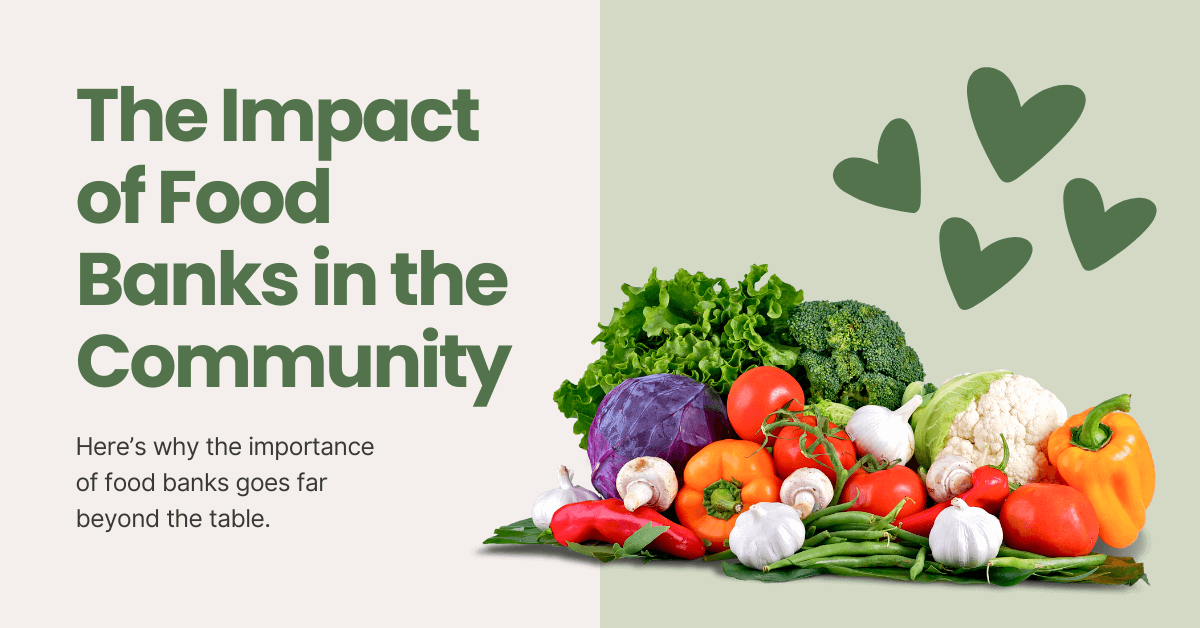
Economic Benefits of Food Banks
Food banks are organizations that provide essential support to individuals and families facing food insecurity. While their primary mission is to address hunger, food banks also offer significant economic benefits to the communities they serve. In this article, we’ll explore how food banks contribute to the economic well-being of their communities in various ways.
Alleviating Poverty
Food banks play a critical role in reducing poverty within communities. By providing free or low-cost food to those in need, food banks help families redirect their limited financial resources toward other essential expenses, such as housing, utilities, and healthcare. This support helps prevent individuals and families from falling deeper into poverty and can lead to improved financial stability.
Supporting Employment
Food banks often rely on a network of volunteers and staff to operate efficiently. By providing employment opportunities, these organizations contribute to job creation within the community. Additionally, local food banks may collaborate with businesses and farms, leading to partnerships that further support local employment and economic growth.
Reducing Healthcare Costs
Access to nutritious food from food banks can have a positive impact on public health. When individuals and families have regular access to healthy meals, they are less likely to experience diet-related health issues, such as obesity and chronic diseases. This, in turn, reduces the burden on the healthcare system and lowers healthcare costs for the community as a whole.
Preventing Food Waste
Food banks play a significant role in reducing food waste within communities. They rescue surplus food from grocery stores, restaurants, and farms, preventing it from ending up in landfills. By redistributing this food to those in need, food banks help businesses and farms reduce disposal costs and contribute to environmental sustainability.

Fostering Community Engagement
Food banks often rely on community support in the form of food donations and volunteer hours. This engagement fosters a sense of community and encourages individuals and organizations to collaborate in addressing food insecurity. People working together for a common cause strengthens community bonds and encourages a spirit of solidarity.
Enhancing Education and Training
Some food banks go beyond providing food by offering educational programs and job training opportunities. These initiatives help individuals acquire valuable skills that can lead to better employment prospects and higher earning potential. By investing in education and training, food banks contribute to the long-term economic empowerment of community members.
Reducing Crime Rates
While the relationship between food insecurity and crime rates is complex, food banks can help reduce desperation-driven crimes, such as theft or petty crimes related to obtaining food. By addressing hunger, food banks indirectly contribute to a safer community environment, potentially lowering law enforcement costs and the burden on the criminal justice system.
Supporting Local Businesses
Food banks often collaborate with local businesses to source food donations or raise funds. These partnerships provide local businesses with opportunities to demonstrate their commitment to social responsibility and community welfare. Supporting food banks can enhance a business’s reputation within the community and attract socially conscious customers.
Economic Multiplier Effect
When food banks distribute food to families, they help stimulate the local economy. Families can use the money they save on groceries to purchase other goods and services, contributing to increased economic activity. This economic multiplier effect can benefit local businesses and bolster the overall economic health of the community.
Emergency Relief
Food banks play a crucial role in providing emergency relief during times of crisis, such as natural disasters or economic downturns. By ensuring that individuals and families have access to food during difficult times, food banks help stabilize the community, preventing further economic hardships.
In conclusion, food banks are more than just organizations that provide food to those in need. They offer a wide range of economic benefits to the communities they serve, from reducing poverty and healthcare costs to fostering community engagement and supporting local businesses. By addressing hunger and promoting economic stability, food banks contribute to the overall well-being of their communities and help build a stronger and more resilient society. Also Read>>







